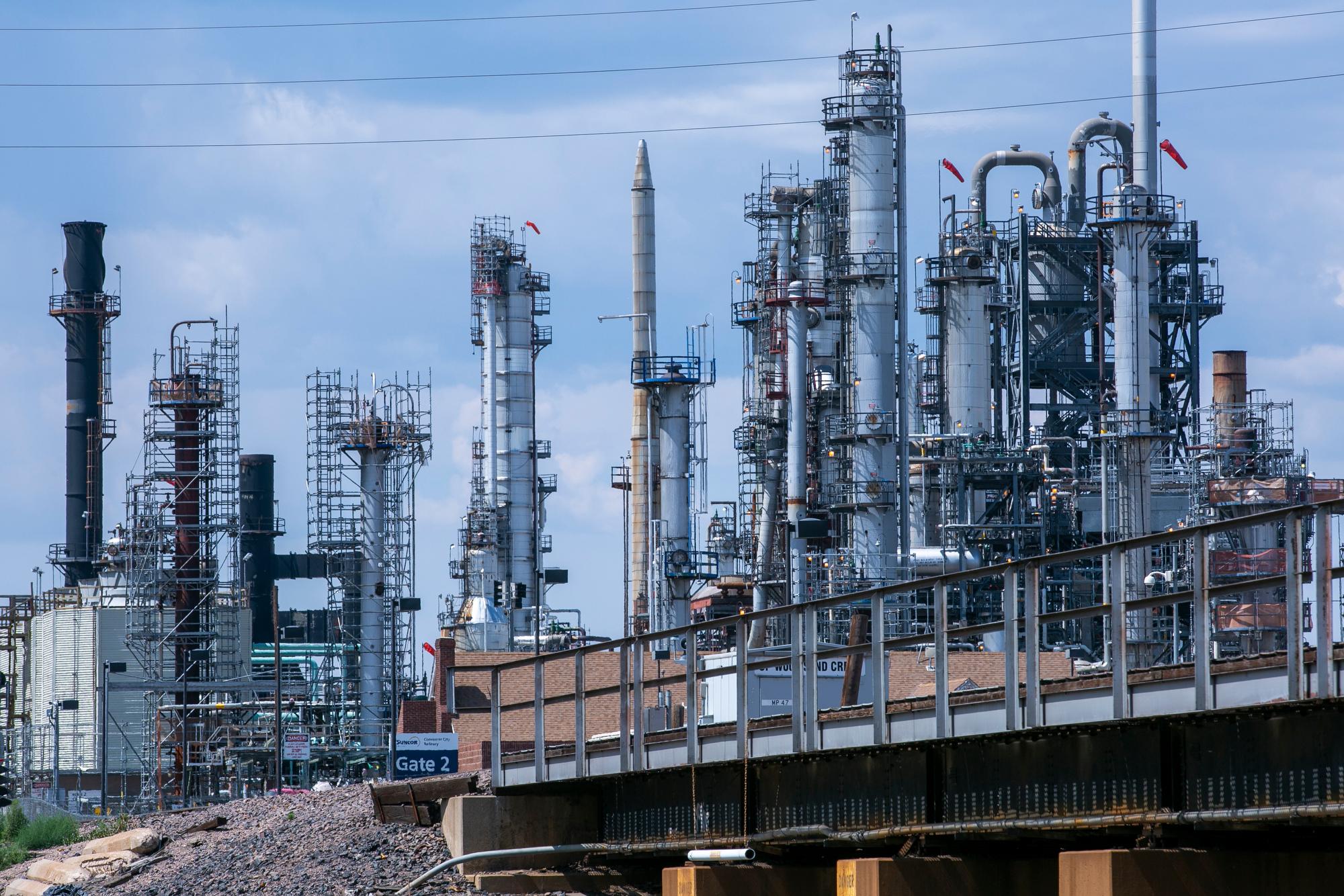
Lucy Molina, a community activist in Commerce City, was at an outdoor Zumba class Thursday when she heard about the latest pollution incident at Suncor.
Another environmental advocate wanted to make sure she was safe. The Canadian company, which owns Colorado’s only oil and gas refinery, had posted a notice on Facebook earlier in the afternoon. A boiler at the facility had failed earlier in the afternoon, causing a release of steam, flares and “emissions exceedances.”
The euphemism hinted at toxic air pollution.
In a later email, a company spokesperson confirmed the breakdown caused emissions above limits set in the refinery’s operating permits. That includes high levels of carbon monoxide and hydrogen sulfide. The Centers for Disease Control and Prevention notes exposure to both levels can be deadly at high concentrations.
The second chemical also carries the distinctive scent of rotten eggs. At the Zumba class, Molina claims she could pick up the faint smell despite her facemask and the wildfire smoke choking Colorado’s Front Range.
“We have COVID up in the air, these fires and then these toxins,” Molina said. “It’s a mixture of death.”
After the incident, Suncor spokesperson Jessica Depencier said the company sent portable gas detection meters into the surrounding neighborhood. The results found air quality was at acceptable levels, as defined by standards set by the Occupational Safety and Health Administration and industrial health groups. Depencier did not provide the specific tests results.
The mishap is the latest in a long series of air and water pollution incidents at Suncor. In March, the company agreed to a $9 million settlement with state regulators over a number of air pollution violations. One involved grey-white ash falling on nearby windshields and schoolyards.
After the penalty, a similar event took place less than two weeks after the settlement announcement.
Further problems involved Sand Creek, which runs just next to the 80-acre industrial site at I-270 and Brighton Boulevard. In May, the company reported a sheen on the surface of the waterway, which it later traced to fuel oil or diesel in a bank along the creek. A company spokesperson said a third-party forensic lab found the spill likely happened before the company took over the facility.
State regulators oversaw company efforts to mitigate the site. After the company removed over 800 cubic yards of soil and completed regulated surface water tests, it now has permission from the state to finish restoring the stream bank.
“Additionally, Suncor extracts the creek water and transports it to their wastewater treatment plant where it is treated and returned back to the creek via the permitted outfall the department monitors,” said MaryAnn Nason, a spokesperson for the Colorado Department of Public Health and the Environment.
While the treatment can remove hydrocarbons from the water, other pollutants are reaching the waterway. State-ordered tests have found high levels of “forever chemicals” in the outflow, which almost certainly comes from firefighting foam used at the facility for years.
Scientists have associated the per-and poly-fluoroalkyl substances, or PFAS, with a wide range of health problems. State water quality regulators are now considering applying a new PFAS standard in Suncor’s next wastewater permit, which would require the company to remove those chemicals as well.
The recent release of hydrogen sulfide could bring further consequences for the company. In the last legislative session, Gov. Jared Polis signed two bills meant to hold large polluters more accountable.
One piece of legislation increases the maximum penalties for air and water pollution violations — and gives nearby communities some power over how the money is spent.
The other law requires companies to inform residents of releases of benzene, hydrogen cyanide and hydrogen sulfide through emergency notification systems, like a reverse 911. Warnings must be in both English and Spanish.
While Polis signed the law in July, it allows six months for companies and governments to comply. Democratic state Rep. Adrienne Benavidez, whose district includes Suncor, said the requirement is meant to provide some relief to anyone living or working near large pollution incidents.
“It’s really just important people understand what’s going and if any release can be dangerous,” Benavidez said.









